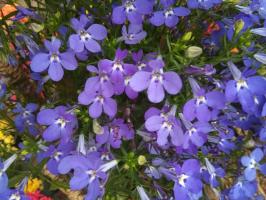Where are JNF Trees Planted?
The Jewish National Fund (JNF) is a non-profit organization dedicated to planting trees in Israel. Since its founding in 1901, the organization has planted over 250 million trees in Israel. But where exactly are these trees planted?
Forests in the North
The north of Israel is home to some of the country's most beautiful forests, and many of them have been planted and maintained by JNF. One such forest is the Birya Forest, which covers over 5,000 acres in the Galilee region. The forest was planted in the 1930s and is a popular spot for hiking and picnicking.
Another JNF forest in the north is the Yatir Forest, which is located near the city of Arad. The forest covers over 25,000 acres and is the largest planted forest in Israel. The Yatir Forest is particularly important because it helps prevent desertification in the area.
Forests in the South
The southern part of Israel is quite different from the lush forests of the north, but JNF has still managed to plant trees in the region. One such forest is the Halutza Forest, which covers over 2,000 acres near the border with the Gaza Strip. The forest was planted in 2006 and is part of JNF's efforts to develop the Negev region.
Another JNF project in the south is the Be'er Sheva River Park, which is located in the heart of the city of Be'er Sheva. The park includes a 3.5-mile-long park with walking paths and bike trails, and over 20 acres of green spaces. The park was built in 2018, and JNF hopes it will help transform Be'er Sheva into a more livable and sustainable city.
Urban Areas
JNF doesn't just plant trees in forests and national parks. The organization also plants trees in urban areas, both to beautify the landscape and to provide shade and pollution control. One such project is the Jerusalem Forest, which is located on the outskirts of the city. The forest covers over 2,000 acres and is an important recreational area for residents of Jerusalem and the surrounding area.
JNF also helps plant trees in schools and community centers throughout Israel. These trees help teach children about the importance of environmental stewardship and provide shade and beauty to these public spaces.
The Impact of JNF Tree-Planting
The impact of JNF's tree-planting efforts goes far beyond the aesthetic benefits of trees. The organization's tree-planting projects have important environmental and social benefits as well. For example, trees help prevent erosion, purify the air and water, and provide habitats for wildlife.
Additionally, JNF's tree-planting projects provide jobs and help stimulate local economies. The organization hires local workers to plant and maintain the trees, and the forests and parks that result from these projects become important tourist destinations, boosting local businesses.
Conclusion
From the forests of the north to the urban areas of the south, JNF's tree-planting projects have left an indelible mark on Israel's landscape. Not only have these projects helped beautify the country and provide important environmental benefits, but they have also provided jobs and helped stimulate local economies. As JNF continues to plant more trees throughout Israel, the impact of its tree-planting projects will only become more profound.

 how many times do yo...
how many times do yo... how many planted tre...
how many planted tre... how many pine trees ...
how many pine trees ... how many pecan trees...
how many pecan trees... how many plants comp...
how many plants comp... how many plants can ...
how many plants can ... how many plants and ...
how many plants and ... how many pepper plan...
how many pepper plan...





























